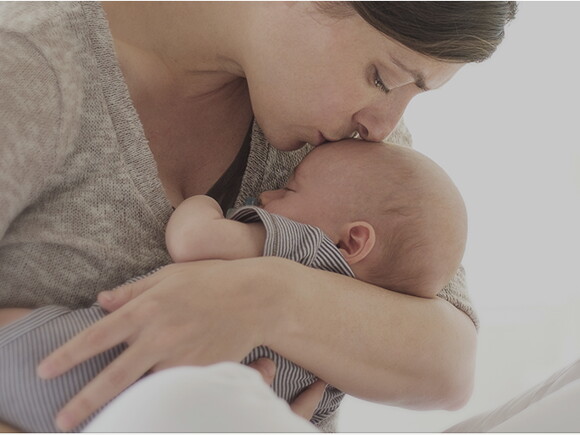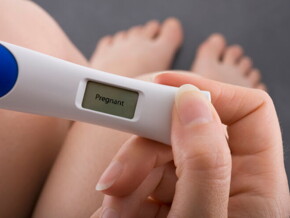
Early Pregnancy Symptoms
Learn to recognize early pregnancy symptoms, understand red flags, and take essential steps for a healthy pregnancy journey.
Discovering the first signs of pregnancy can be both an exciting and overwhelming experience. Whether you're actively trying to conceive or just suspecting a new addition to your family, recognizing early pregnancy symptoms is crucial.
Understanding what to look for can help you confirm your pregnancy sooner and begin the journey of prenatal care, ensuring the best start for you and your baby.
In Baby&Me, we'll delve into the common early pregnancy symptoms that many women experience. By familiarizing yourself with these signs, you can better prepare for the changes ahead and make informed decisions about your health and well-being.
Which Are the First Pregnancy Symptoms?
Identifying the first pregnancy symptoms can provide reassurance and clarity during the early stages of pregnancy. Here are some of the most common early signs to look out for:
- Often the first and most obvious sign, a missed menstrual cycle can indicate pregnancy, especially if your periods are regular.
- Many women experience nausea, with or without vomiting, typically starting around the sixth week of pregnancy.
- Hormonal changes can make your breasts feel sensitive, sore, or fuller than usual. This symptom can appear as early as one to two weeks after conception.
- Feeling unusually tired or exhausted is a common early symptom, often caused by increased levels of the hormone progesterone.
- Around six to eight weeks into pregnancy, you may notice an increased need to urinate due to hormonal changes and increased blood flow to the kidneys.
- Sudden changes in your appetite, such as strong aversions to certain foods or unusual cravings, can be an early sign of pregnancy.
- Hormonal fluctuations can lead to emotional changes, causing you to feel unusually weepy, irritable, or anxious.
- Light spotting and mild cramping can occur as the fertilized egg implants itself into the lining of the uterus, usually around six to twelve days after conception.
Recognizing these early pregnancy symptoms can help you confirm your pregnancy and seek appropriate prenatal care promptly.
If you suspect you might be pregnant, consider taking a home pregnancy test or consulting with your healthcare provider for further confirmation.
What Should I Do If I Find Out That I'm Pregnant?
Discovering that you are pregnant is a momentous occasion, filled with excitement and anticipation. Here are some important steps to take once you find out you’re expecting:
Schedule a Doctor's Appointment
As soon as you confirm your pregnancy, it's essential to book an appointment with your healthcare provider. They will confirm your pregnancy, estimate your due date, and start planning your prenatal care.
Regular check-ups are crucial for monitoring the health of you and your baby.
Start Prenatal Vitamins
Begin taking prenatal vitamins with folic acid right away. Folic acid is vital for the baby's neural tube development, which occurs in the first month of pregnancy. Your doctor can recommend the best prenatal vitamin for you.
Adopt a Healthy Lifestyle
Focus on a balanced diet rich in fruits, vegetables, whole grains, and lean proteins. Staying hydrated and maintaining a healthy lifestyle will support your baby's growth and development.
Avoid alcohol, smoking, and illicit drugs, as these can harm the baby.
Stay Active
Regular, moderate exercise is beneficial for most pregnant women. Activities like walking, swimming, and prenatal yoga can help maintain fitness, reduce stress, and prepare your body for labor.
Monitor Your Health
Pay attention to your body and report any unusual symptoms to your healthcare provider. It's important to keep track of your health and any changes you experience during pregnancy.
Rest and Relax
Pregnancy can be physically and emotionally demanding, so ensure you get plenty of rest. Practice relaxation techniques such as deep breathing, meditation, or prenatal massages to reduce stress and promote well-being.
Taking these steps will help ensure a healthy and happy pregnancy journey for you and your baby. Always consult with your healthcare provider for personalized advice and guidance throughout your pregnancy.

What Should I Do If I Find Out That I'm Pregnant?
While many early pregnancy symptoms are normal and part of the body’s adjustment to pregnancy, there are certain signs that may indicate potential complications. It's important to be aware of these red flags and seek medical attention if you experience any of the following:
- Mild cramping can be normal, but severe or persistent abdominal pain may indicate a problem, such as an ectopic pregnancy or miscarriage.
- Light spotting can be common in early pregnancy, but heavy bleeding similar to a menstrual period, especially if accompanied by pain, could be a sign of miscarriage or other serious issues.
- Feeling lightheaded occasionally can be normal, but severe dizziness or fainting can indicate low blood pressure or other health concerns that require prompt medical evaluation.
- While morning sickness is common, excessive vomiting that leads to dehydration and weight loss, known as hyperemesis gravidarum, requires medical attention to ensure you and your baby are getting enough nutrients.
- A fever during pregnancy could signal an infection that might need treatment.
- Pain or burning during urination could be a sign of a urinary tract infection (UTI), which is common during pregnancy. UTIs should be treated promptly to prevent complications.
- Sudden or severe swelling, especially when accompanied by headache, vision changes, or upper abdominal pain, can be a sign of preeclampsia, a serious pregnancy complication.
- Persistent, severe headaches or changes in vision, such as blurriness or flashing lights, can be symptoms of preeclampsia.
Being vigilant about these red flags and seeking prompt medical care can help ensure the health and safety of both you and your baby during pregnancy.
Always trust your instincts and don't hesitate to contact your healthcare provider if something doesn’t feel right.
Recognizing early pregnancy symptoms and understanding the red flags can make a significant difference in ensuring a healthy pregnancy. By staying informed and proactive, you can navigate this exciting journey with confidence and peace of mind.
Always consult with your healthcare provider for personalized guidance and support, and remember that each pregnancy is unique. Embrace the changes and take care of yourself as you prepare to welcome your new baby into the world.

Gain a better understanding of your child's development with the help of our stages
































